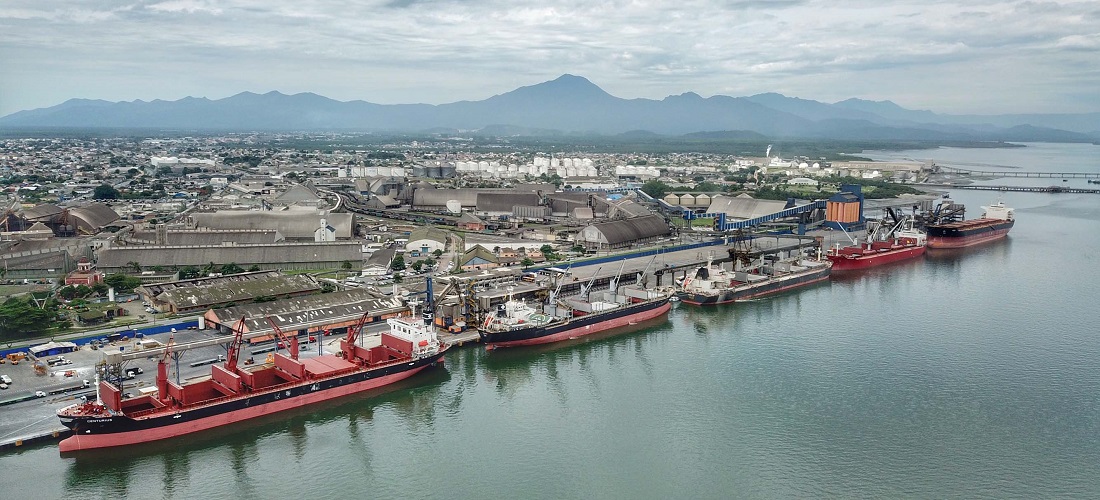
New work shifts at Port of Paranaguá create strife among workers
Feb, 17, 2021 Posted by Ruth HollardWeek 202107
The increase in the number of work shifts at the Port of Paranaguá from two to four has caused controversy at OGMO Paranaguá (the labor-management body of the Port of Paranaguá).
In January, the agency added two work shifts to the other two already in existence, for a new total of four shifts, one for each period: 7 am to 1 pm; 1 pm to 7 pm; 19h to 1h; 1 am to 7 am. The Port of Paranaguá was one of the only ports in the country to continue with the two-shift system. Other large Brazilian ports, such as Santos (SP), Imbituba (SC), Itaqui (MA), São Francisco do Sul (SC), and Suape (PE) had already opted for systems that include three to four shifts.
According to Shana Carolina Colaço Vaz Bertol, executive director of OGMO Paranaguá, the change was motivated by seeking continuous improvement in manpower management and in making port operations feasible. This is because many workers were dissatisfied when they were scheduled for work on ships that for some reason failed to materialize (due to rain, ship cancellation, equipment breakdown, failure to release cargo, etc.) and ended up receiving just daily wage instead of also being remunerated based on productivity.
According to the agency, the new four-shift system guarantees that the port operator can organize more assertive operations. Currently, in the two-shift system, the operator operates with a 12-hour predictability window, often having his activities hampered by unexpected factors (rain, a ship heading for the scrapyard, an equipment breakdown, cargo released, etc.). With the implementation of the four shifts, this predictability window becomes 6 hours, which allows for more efficient planning of operations. Also, the worker will be able to choose the desirable period for the functions that pay the best, being less subject to the occurrence of the so-called “burned for good” – when the worker is placed on a good list (with more significant payment), due to some impediment, but there was no productivity in that period either. The new four-shift system also allows the autonomous port worker (TPA) to qualify for any of the periods for that day and the next day, different from the previous model, which allowed the worker to qualify only for the two periods following the shift.
The initiative, however, has been criticized by SINDESTIVA (Paranaguá and Pontal do Paraná dockworkers union), which even after an attempt at negotiation, filed a lawsuit demanding the immediate and definitive suspension of the four work shifts. For OGMO, such resistance was already expected, since, historically, the control of the shift has always been an important tool of the unions of independent workers to justify stoppages in Brazilian ports.
Also according to OGMO Paranaguá, the organ participated in a mediation meeting held on January 19, with representatives of the TPA labor unions. To find a negotiated alternative and avoid a judicial discussion, a more gradual transition in the work schedule was proposed: three daily shifts beginning on February 1st, increasing to four daily shifts beginning on March 1st with systematic adjustments to be made by OGMO Paranaguá when necessary. The proposal, immediately accepted by OGMO and SINDOP, was refuted by SINDESTIVA, which was adamant about any change in the number of shifts and filed a lawsuit asking for the end of the initiative.
Among the arguments defended by SINDESTIVA against the new shift is the fear of a decrease in the number of requests by port operators, something that, according to OGMO Paranaguá, did not happen during the ten days in which a new shift system was in operation from January 15-24. Another claim by the union against the change is the possible psychological problems that the act of checking the work shift online four times a day could theoretically cause the worker.
On January 22, a conciliation hearing was held at the 1st Labor Court in Paranaguá, regarding the lawsuit filed by SINDESTIVA. The four shifts are suspended until February 25, the date of the next scheduled hearing.
-
Ports and Terminals
Jan, 29, 2020
0
Itaqui Port to invest R$59 million in improvements
-
Grains
Mar, 04, 2021
0
Agribusiness share of total exports falls due to drop in soybean handling
-
Shipping
May, 03, 2023
0
The multi-fuel future of maritime freight
-
Ports and Terminals
May, 16, 2024
0
JBS to take over operation of the Port of Itajaí



